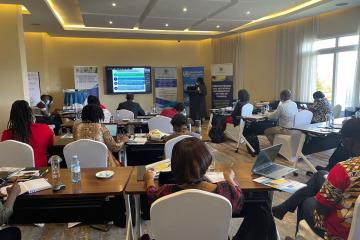With the recent news about the multistate bird flu outbreak, the question of whether raw milk is safe to drink might have just gotten even more serious. According to the most recent data available from the CDC, as of June 28, more than 130 dairy herds in states across the country have been affected by the virus, raising the possibility that their milk could be contaminated as well.
While the CDC recommends you definitely do not drink raw milk (or eat products made from it), proponents continue to claim that its purported benefits—like “boosting” immunity or offering more nutrients than pasteurized milk—outweigh its potential risks. So what’s the real deal behind raw milk—and can you get bird flu from it? SELF connected with a few experts to get all of your questions answered.
Here’s how raw milk differs from the regular stuff.
Simply put, raw milk is unpasteurized; it hasn’t been heated for long enough to eliminate harmful pathogens that might be in it, Nicole Martin, PhD, an assistant research professor in dairy foods microbiology at Cornell University, tells SELF. That means the drink doesn’t undergo the processing necessary to help prevent foodborne illnesses.
In 1987, the FDA mandated that milk sold interstate in the US must be pasteurized, John Lucey, PhD, the director of the Center for Dairy Research at the University of Wisconsin-Madison, tells SELF. That means that raw milk can’t be sold across state lines. However, individual states can make their own decisions about sales within the state: According to the FDA, 20 states prohibit it in some form, while 30 allow it.
Despite what raw milk fans may believe, the pasteurization process doesn’t mess with the nutritional makeup of the beverage. For example, it doesn’t alter the concentration of minerals or significantly change the quality of protein in the drink, according to a 2015 review published in Nutrition Today. What’s more, evidence for immune-boosting effects just isn’t there, either. Raw milk doesn’t pack enough antibodies—proteins that help build up your body’s defenses against illness—to make a difference health-wise, according to the FDA. “Ultimately, we haven’t seen any [overall] proven benefit from consuming raw milk,” Dr. Lucey says.
What are the health risks of drinking raw milk?
Raw milk gets contaminated in two main ways. The first is internal: If the animals carry illness-causing pathogens, then the bugs can seep into their milk. Second, external factors like polluted water, dirt, manure (livestock can kick it into the milk supply), and contaminated equipment can introduce germs.
The bird flu virus might be your biggest concern at the moment, but raw milk can harbor plenty of other bugs, including E. coli, Campylobacter, and Salmonella bacteria. Symptoms of infection can include diarrhea, stomach pain or cramps, nausea, vomiting, or fever, Dr. Lucey explains, though they can vary depending on the bug causing it. The effects can be more severe for children, people 65 years or older, pregnant folks, or those with compromised immune systems, Dr. Martin says. But anyone can get really sick from downing raw milk products. In rare cases, the beverage can cause serious issues like hemolytic uremic syndrome, which can lead to kidney failure and stroke, or Guillain-Barré syndrome—a condition that can cause paralysis. Especially severe illness can even be deadly.
Note: This article have been indexed to our site. We do not claim legitimacy, ownership or copyright of any of the content above. To see the article at original source Click Here













